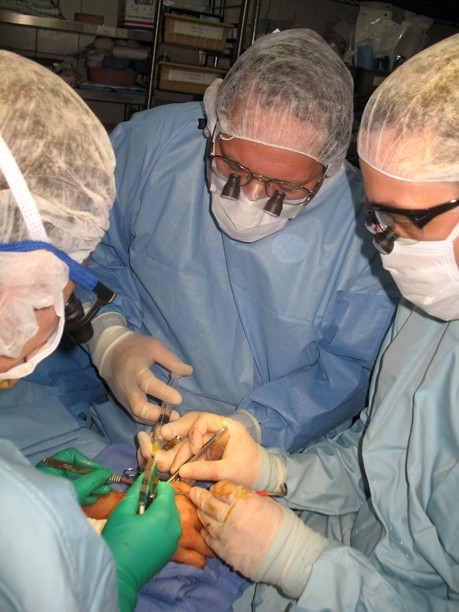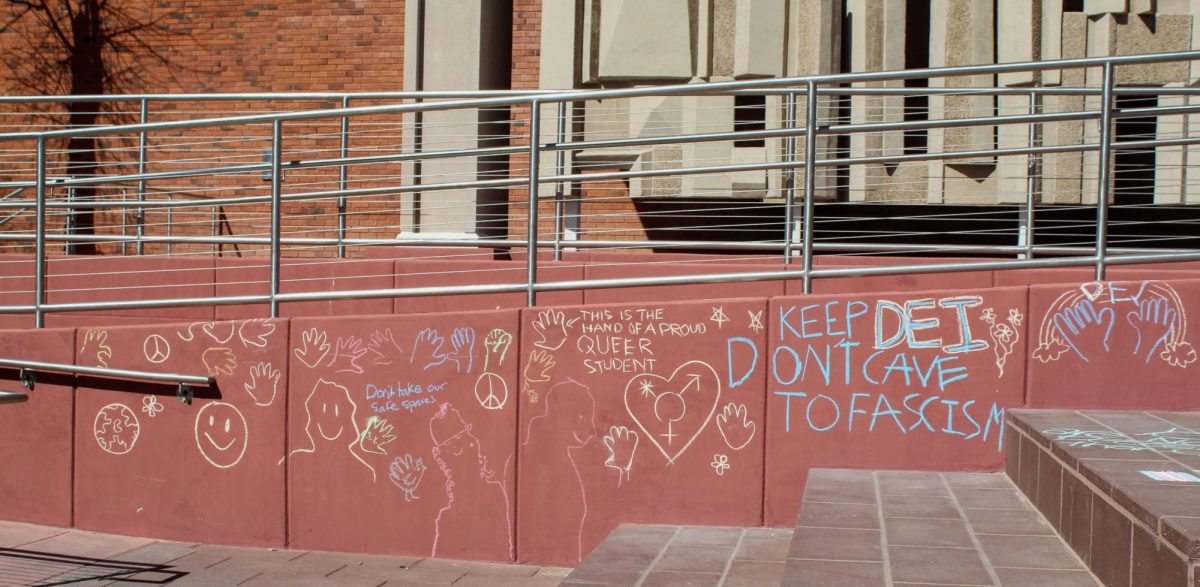It was the medical team’s first night in Honduras and, after the long trip, the team members just wanted to sleep.
They were woken up at 1 a.m. Confused and tired, they put on their scrubs and rushed to the operating room.
A 17-year-old boy had been brought in, his thumb nearly amputated from a machete. The medical team included Dr. Joseph Sheppard, a University of Arizona Medical Center orthopaedic surgeon.
The boy was quiet and in shock. The sight of his bloody hand shocked everyone out of their fatigue.
The doctors donned their surgical loupes to magnify their vision and began to perform the precise microsurgery required to save the boy’s hand. After a few hours of operating, they succeeded.
The medical team was busy until 6 a.m. After a short break, they were back in the free clinic at 7:30 a.m. to treat other patients.
And that was just the first day.
The weeklong medical mission was arranged by Evangelistic International Ministries. Sheppard went on his eighth annual trip to Honduras last month. After 25 years of practice and repetition, he has become interested in teaching medicine as well as charity work.
“I realized I felt as though I had something more to give than simply private practice,” he said.
During an earlier medical mission, he’d seen the poor state of Hospital Centro Socorro De Lo Alto’s makeshift soccer field. The field wasn’t level and the goals were made out of branches, Sheppard said. People were rarely seen playing.
When Sheppard returned to Tucson, the brief thought he had of improving the soccer field and sponsoring a team became a reality.
Jamie Fleming, a third-year UA medical student, learned of Sheppard’s plans. Fleming, the global health chair of Tucson’s American Medical Student Association for the 2011-2012 year, raised about $500 for the cause. Sheppard received about $2,500 that went toward a bulldozer to flatten out the field, new goalposts, nets, equipment and uniforms.
“Now the people in the community know that the health professionals that are coming there aren’t just going for a week of service and then leaving,” said Fleming, who accompanied Sheppard on the trip.
The health professionals are invested in improving the community in the long run, Fleming said.
“Periodically, I would just look back and realize this was just a little thought I had last year that Jamie took one step further, and it just grew into something quite spectacular from my perspective,” Sheppard said. “No matter what happens medically they’ll always have that and it’ll give them a sense of pride and community.”
The community gathered together on the medical team’s last afternoon to hold a dedication for the field and to watch the doctors play against the team named Los Gatos Salvajes, which means “the wildcats” in Spanish.
There were balloons decorating the goalposts, spectators around the field, a prayer and fireworks. Sheppard gave a dedication and cut the ribbon.
The community’s response showed Sheppard how important and meaningful the fundraising work had been, he said. He was surprised by the ease at which it all came together. The fundraising hadn’t been a huge burden to anyone and with a couple of hundred dollars they were able to make great change, Sheppard said.
“It’s nice to have such a simple thought become such a meaningful reality to somebody else,” Sheppard said. “It kind of makes you wonder how many other simple thoughts are residing out there that you haven’t actually exploited that might make a difference.”









